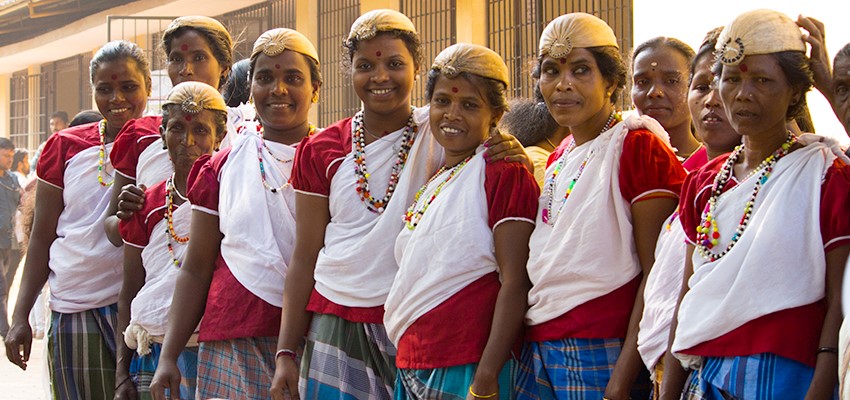
Activists fume after Kerala govt bars outsiders from entering tribal areas

A new order barring outsiders from entering tribal settlements in Kerala without permission from authorities has upset activists who feel “it is an attempt to draw an iron curtain over the burning issues of the tribals in Kerala” and disempower the community.
However, K Radhakrishnan, minister for the welfare of the scheduled castes and scheduled tribes, defended the move, saying that it was being done to protect tribals and to prevent them from being influenced by Maoists.
On May 12, 2022, the Directorate of the Scheduled Tribes Development Department (STDD) issued an order that restricted the entry of non-tribal ‘outsiders’ into tribal settlements in Kerala.
The order stated that whoever enters tribal settlements must get permission by applying to the authorities concerned 14 days prior to the date of the visit. The order stipulates that research, internship, field survey, and conducting camps, film shooting and videography will not be allowed without permission.
The order said the project officer/tribal development officer may grant permission for a period of maximum one month for research or internship. The officer will also be authorised to decide which particular tribal settlement people can visit. The requests for permission to do research, field survey, internship, film shooting and videography are to be sent to the district level departments and this, in turn, would be forwarded to the Directorate, which has the final say on the matter.
The authorities concerned (at the district level), however, would grant permission for conducting camps related to medical requirements, and social work if the proposed camps do not exceed three days. Only the Directorate has the authority to permit camps that require more than three days, according to the order. Moreover, no permission would be given for staying in the tribal settlements during nights.
Also, the order stated that a copy of the report of every research/field survey should be made available to the Directorate. Whoever does not adhere to these instructions will not be given permission for another visit. The order also said that special permission from the police department is required to visit ‘LWE (Left Wing Extremism) areas’ – places earmarked as Maoist spots.
Also read: One year of Pinarayi 2.0: How ‘women-friendly’ has LDF been in Kerala?
Tribal activists have slammed the move. “This is nothing but an attempt to put an iron curtain over the burning issues of the tribal people in Kerala,” said K Ammini, a tribal leader from Wayanadu, who is also the state president of the Adivasi Women’s Movement.
“Researchers, media persons and social activists are the people who listen to our problems and expose the same to the world outside. The government wants to block them with this move,” Ammini told The Federal.
According to Ammini, Kerala has only implemented the Forest Rights Act (2006) partially. Besides, the government is trying to usurp the powers of the chieftains of the tribal settlements, she said. “In disguise of this order, anybody can be portrayed as ‘Maoist”, Ammimi said, adding that alleging a person has connections with extremist groups is an easy way to block social activists and human rights defenders.
‘Need to regulate movement of outsiders’: K Radhakrishnan, minister
The rationality behind the decision is explained by the minister in a conversation with The Federal. “Incidents of sexual harassment and exploitation by non-tribals are a cause of concern. There is a need to monitor and regulate the movement of outsiders,” said K Radhakrishnan, minister for the welfare of the scheduled castes and scheduled tribes. He also told The Federal that the infiltration of extreme left-wing groups into the tribal communities is another factor behind the decision.
“In some parts of Kerala, the tribals are reluctant to shift despite living in deplorable conditions. I personally have met tribals who are unwilling to move out of flood-hit areas and places with a high occurrence of man-animal conflict. This happens because they are under the influence of extremist groups. They might even be threatened by them,” said Radhakrishnan.
However, the tribal leaders did not concur with this view. “Exploitation and sexual harassment committed by outsiders is not a new problem. This is not a convincing reason,” countered Geethanandan, one of the founders of Adivasi Gothra Mahasabha. Geethanandan felt this circular is an attempt to disempower the tribal communities.
Also read: Kerala govt draws flak for sending team to study Gujarat CM dashboard
“Who should enter the settlement and who shouldn’t must be a decision tribals should take, not the officers in the tribal department,” Geethanandan told The Federal.
“How can a government allow anyone who applies for permission to get into a tribal settlement, do things as they please, take surveys or do the filming? We have a lot of bitter experiences of outsiders coming to the settlements who show little regard for the privacy and personal liberty of tribal people. It is the prerogative of the chieftains of each settlement to decide whether someone should be allowed or not,” she said.
Moreover, Geethanandan also said the new move by the government would be misused by the authorities to block media persons from entering the villages and letting the world know the injustice being meted out to them by the government.
However, minister K Radhakrishnan, while talking to The Federal, refuted this argument. “Mediapersons will not be blocked. The government will take care of it,” he said.

